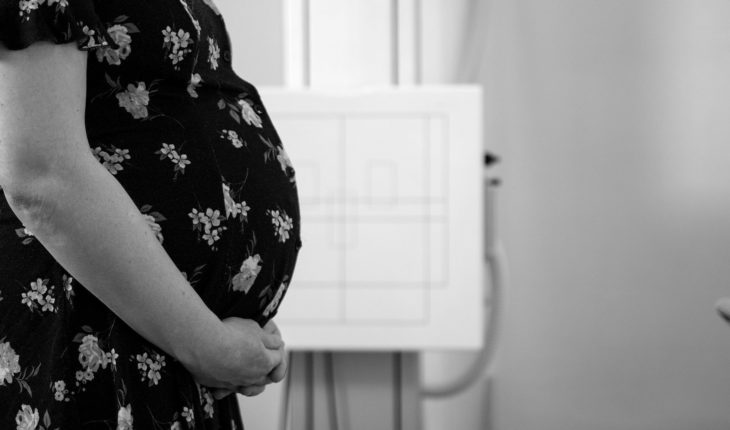in January 2016, Patricia was the victim of a sexual assault in Jalisco. When he went to the public prosecutor’s Office to denounce and to demonstrate their desire to terminate pregnancy product of rape, authorities asked the Ministry of health to provide it the health service.
A week after filing the complaint, gave him some pills of misoprostol (drug that induces contractions) and data from a doctor who could follow up on their abortion. Officials from the Ministry of health warned him that he had “absolute discretion” because if “they grabbed her” medication “would not it will end”.
The 16-year-old boy followed the instructions given in the hospital, and from the first doses of misoprostol – pills recommended by the World Health Organization for abortion with drugs – has had vomiting, dizziness, nausea, abdominal pain and a abundant bleeding.
Her mother called the doctor recommended, and this, when practicing an ultrasound Patricia, realized that the abortion had not been successful.
The girl’s mother appeared at the hospital where provided pills and claimed medical staff received treatment. As the termination of pregnancy with drugs was not successful, asked you to practice a manual suction vacuum aspiration (MVA), but said that in the medical unit they did not have “crippling of babies”.
At the hospital also was informed that the doctors refused to offer the service, because “they were aware”.
Days later, staff of the Secretariat of health of Jalisco called Patricia to offer a new treatment to interrupt her pregnancy, and told him that they did not know how to act because it was “the first time that it had a case of this nature”.
Patricia joined a public State hospital that undertake you the Mva, where they faced discriminatory treatment for part of the medical staff and nurses, who you said things like that “babies are not to blame”.
In the midst of a hostile and uncomfortable atmosphere, doctors forced Pat to give birth without pain medication. As not allowed access to his mother, is asked the psychologist from the State Prosecutor’s office came to accompany it.
After the abortion, Patricia presented bleeding for a month and a half. His mother had to pay for a private doctor for it were it because in the public hospital refused to attend it. They were told that they did not know the case.
In Mexico, the legal to abort causes vary in each State of the Republic while abortion for rape is legal across the country. However, there are cases like Patricia, in which medical staff denies or impedes services by fear or misinformation regarding their obligations while the product was the result of a rape.
Mexico ranks first in pregnancies in adolescents between the countries of the Organization for cooperation and economic development (OECD). According to official data, each year occur in the country at least 340,000 births in women under age 19, situation that negatively affects their health, education, the economy and their opportunities.
Abortion is considered by the World Health Organization (who) a matter of public health, as from 2010 to 2014 25 million unsafe abortions (45 per cent of all abortions) occurred globally a year, according to a new study by the who and the Institute Gut tmacher. The majority of unsafe abortions (97 per cent) occurred in countries of Africa, Asia and Latin America.
“When women and girls can not access to effective contraception and safe abortion services, there are serious consequences for their own health and that of their families. This should not happen. However, despite the evidence and recent advances in technology, too many unsafe abortions continue to produce and too many women still suffering and dying”, says the scientist responsible for developing the study of who, Bela Ganatra.
Denial of service and conscientious objection on March 22, the Congress of the Union approved an addition to article 10 BIS of the General Health Act, which establishes that the medical staff and nursing which is part of the national health system may exercise the conscientious objection and excuse themselves participate in health services established in this law, except in cases in which put at risk the life of the patient, or in the case of a medical emergency.
In April of 2018, the case of two women, Marimar and Fernanda, who denied access to the legal interruption of pregnancy, despite being victims of rape, reached the Supreme Court of Justice of the nation (SCJN).
The Court found that, in both cases, the human rights of the victims had been violated because medical authorities “must immediately meet the request (of abortion), in order to not allow that the consequences of physical, psychological, etc,” derived from sexual assault remain deploying in time”.
Therefore, the Supreme Court granted two protections to these women, accompanied by information group reproduction elected (turn), and with its resolution, the Court made it clear that the medical staff has the obligation to ensure access to abortion in case of rape sexual, and in other cases stipulated in the grounds laid down in State criminal codes.
Since cases of denial of services by medical personnel to women who want an abortion in the country and the recent adoption of the conscientious objection in Mexico, human ONU-Derechos and UN United Nations agencies expressed their concern to the Mexican Government because this reform could represent “an obstacle to access timely, acceptable, affordable and quality” in health care.
In a statement, they expressed regret that the addition to the Act has not provided suitable safeguards so that medical services are never denied, as well as staff recruitment not conscientious objector in all instances of medical care in the public sector.
International agencies alerted the Mexican State because this measure could generate obstacles substantive to address the challenges that persist in the country in terms of maternal mortality, teen pregnancy, sexual violence and insecure interruption of pregnancies.
Imprisoned for abortion according to the report, maternity or punishment, prepared by the Organization of the civil society group of information on reproduction chosen (turn), Mexico, between 2013 and 2017, the secretariats for public safety reported having a record of 83 persons in pre-trial detention for the crime of abortion–44 women and 39 men–and other 53 in final prison–19 women and 34 men.
The penalties for the crime of abortion for women are classified in the custodial sentences ranging from 15 days to six years, or a fine from 20 to 300 minimal wages. In some States, the accused must carry out work on behalf of the community, and undergo medical and psychological treatments as part of the punishment.
In the State of Aguascalientes, in addition, women have a “repair the damage” penalty, a sanction that turn qualifies as “questionable”, because it suggests that induced abortion can cause an involvement beyond the own pregnant woman.
Every day, the country alleged to a person for the crime of abortion.
The State with the highest number of cases of pre-trial detention for this crime was San Luis Potosí, in which 21 women and seven men were taken to jail for this crime.
One of those women is Hilda, who was sentenced in April 2013 to one year in prison by a miscarriage.
In July 2009, the 18 year old, belonging to a family in poverty, presented discomfort while doing housework, by what her mother and her sister led her to the basic Community Hospital of Tamuín, San Luis Potosí.
Your clinical record, doctors pointed out had a six-week pregnancy and had come with “incomplete abortion”, by which the hospital staff gave knowledge to the Public Ministry, where began a preliminary investigation in the case.
During the six hours that was interned in the hospital, Hilda was guarded by police officers, and then it was moved to the “separos”, where he was detained overnight. She was released the next day for lack of evidence.
However, the investigation against continued open, her unbeknownst to. Three years later, Hilda was arrested because she was accused of having provoked an abortion with pills.
San Luis Potosí authorities allowed him to carry his process in freedom, and after 20 hours stopped, and the payment of bail of 3,000 pesos, Hilda could leave prison.
On April 5, 2013, a judge sentenced Hilda to a year in prison. The young woman, accompanied of turn, he appealed the decision, which was overturned in August of the same year under violations of due process were presented in the trial against her. In addition, the fifth room joint of the Supreme Court of the State said that criminal responsibility was not accredited, since had not determined the cause of the abortion.
In this case, the State Commission of human rights of San Luis Potosí issued recommendation 25/14, in which it was recognized that the Attorney General of Justice of the State and the health services violated their human rights to the legality, legal certainty and the due process.
However, this did not recognize was violated the human rights of Hilda to equality, non-discrimination and health. In addition, according to the testimony given by Hilda in a documentary by name Viva Mexico, neighbors and acquaintances already had criminalized it, pointed it and didn’t speak you to treat it as a killer.
The second entity with more detainees in cases of abortion is Guanajuato, with seven women and six men; followed by Quintana Roo, with four women and four men, and city of Mexico, where a woman and seven men were in pre-trial detention.
Final imprisonment for abortion, the entity that has the greatest number of cases is the State of Mexico, where nine men and a woman were jailed for this crime.
In Quintana Roo and city of Mexico, in four years were sentenced to short prison four women and four men, respectively. In the State of Baja California, which ranks third in number of cases, they jailed two men and five women.
City of Mexico, the only entity in the country in which the interruption of pregnancy is permitted by any causal during the first 12 weeks of gestation, is where more complaints submitted by 2016, with 894 cases and abortion among 2007 – year in which was then legalized -.
Although overall crime in the penal codes of the 32 States refers to the death of the product at any time during pregnancy, in certain cases these not only sanction malicious abortions accomplished, but also its attempt: in Coahuila and Veracruz, through the crime of “injury to the intended”, and in the case of Zacatecas, in way Express, penalize abortion attempts which injury to the fetus.
To turn, the criminalization of abortion in Mexico continues to hamper and sometimes returning impossible the access to legal termination of pregnancy services, which not only affects women criminally prosecuted for this crime, but also to those who must choose between undergo clandestine and risky medical processes or are forced to accept motherhood.
According to the who report, it is essential to understand that restrict access to abortion does not reduce the number of abortions. “Most of the abortions that are performed in Western Europe and North and North America are safe – says the document. These regions also have the lowest rates of abortion. The majority of countries in these regions also boast relatively permissive abortion laws, high levels of use of contraceptives, economic development and gender equality, and health services of high quality, all factors that they contribute to make abortions safer”.
For this reason, says turn, the right to a destination maternity remains a historical debt that the Mexican State has with women.
translated from Spanish: For abortion criminalization hinders access to health
September 1, 2018 |





